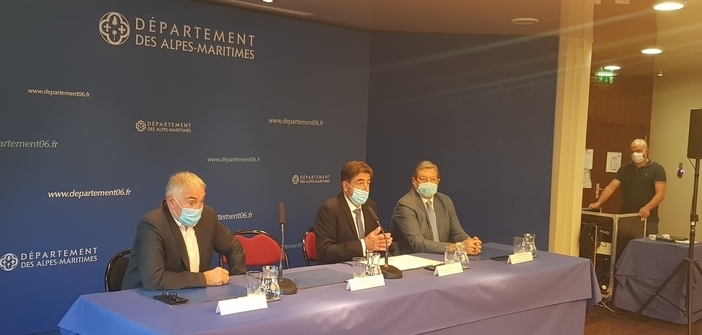Charles Ange Ginésy, president of the Alpes-Maritimes department, gave a lecture on Wednesday about combating social benefit fraud at the CADAM in Nice. It’s a topic of particular concern for the department in view of its insertion policy.
The session begins. In the presence of deputy Eric Ciotti and vice-president in charge of insertion, Auguste Vérola, Mr. Ginésy delves into the matter making the headlines following the Court of Auditors’ reports on social fraud.
Why department 06 in particular?
Here in the Alpes-Maritimes, it’s an issue taken seriously by Eric Ciotti for some time, particularly since the creation of France’s first anti-fraud brigade in 2011, composed of 42 agents. The system is tasked with suspending benefits when recipients are no longer entitled to them.
In this context, the Active Solidarity Income (RSA) is not exempt from fraud. The professional insertion policy allocated 149 million euros to the 2020 budget, of which 134 million is solely for RSA disbursement.
Some key figures
The Court of Auditors reveals that social organizations have detected no less than one billion euros in damages (2019). Additionally, there were 573,000 excess health insurance cards and 2.4 million social security numbers without any physical existence.
Overall, fraud is estimated between 14 and 45 billion euros last year.
Since the launch of the RSA anti-fraud brigade, more than 37,000 suspension decisions have taken place and nearly 2,000 administrative fines have been issued.
From 2019 to 2020, in light of all the suspensions, savings have significantly decreased (15 million euros in savings in 2019, only 4.5 million in August 2020).
The impact of Covid-19
This was quite predictable. The health crisis linked to the Coronavirus indeed had a financial impact. 109 million euros were disbursed in September 2020, 9 million more than the previous year.
Since the lockdown last February, there are 26,000 RSA beneficiaries, almost 3,000 more than before, which is a 13% increase.
Finally, to fight against the precariousness of RSA beneficiaries and support struggling local companies, the “Act for Employment” plan was created. This plan proposes to pay employers who hire an RSA beneficiary an amount of 497 euros per month for each single insertion contract for a period of 6 to 12 months.
An idea that would allow “going further to fully experiment on departmental management of RSA”, according to president Ginésy.


